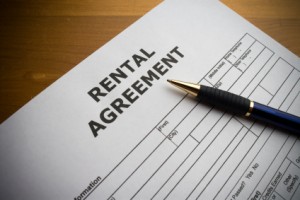Posted by Teresa on September 28, 2010 under Landlord Tips | 
 Many human resources managers are fans of the exit interview, where a soon-to-be ex-employee is asked a series of questions about his or her time with the company. They generally use the employee’s feedback to monitor procedures and gain insight into problem areas. Presumably, they will take the information gathered and make improvements.
Many human resources managers are fans of the exit interview, where a soon-to-be ex-employee is asked a series of questions about his or her time with the company. They generally use the employee’s feedback to monitor procedures and gain insight into problem areas. Presumably, they will take the information gathered and make improvements.
Some employees use the exit interview as an excuse to unload every frustration about the company, the boss and the co-workers they were doomed to work beside. But most HR folks know that they can be a source of good, honest feedback—after all, with no chance of repercussion, an employee who’s already resigned can be completely honest.
Haven’t you often wondered why your good tenants leave your rental property? Perhaps you routinely ask, but have you considered expanding on the simple “why are you moving?” into your own version of the exit interview? It’s good to know what went wrong and why a good tenant is moving. They are your perfect focus group—they are your target market, passed your screening process and apparently liked your rental property enough to live there. But something made them move. As a landlord, it’s your job to find out why they’re leaving—and how to prevent it next time.
Here are some questions you can ask tenants who are moving out:
- Why are you moving? (Obvious, but necessary.)
- Where are you going? This question is not intended to elicit an address—remember, you’re not interested in stalking the tenant! You want to know generally where they’re going—across town? Leaving the state?
- What do you think about the rent for this unit? Is it fair? Too high? Too low? These answers can tell you what the market will actually bear.
- How did you find your new place? This can help you determine where to advertise your new vacancy!
- How would you describe your experience renting here? This is an open-ended question that can result in all types of answers.
You may hear an earful about the other tenants. You may hear some unpleasant things about yourself as a landlord. Most likely, it will be a mix of things you can do something about and things you can’t. The goal is to get good feedback on how to improve your rental property to keep good tenants from moving away.
Posted by Teresa on September 25, 2010 under Housing Trends | 
 A new survey by Fannie Mae reveals that the goal of home ownership is losing its appeal for Americans. Falling home prices, foreclosure and financial ruin is enough to make the strongest homeownership desire fade, as evidenced by the falling number of people who say they consider housing a safe investment.
A new survey by Fannie Mae reveals that the goal of home ownership is losing its appeal for Americans. Falling home prices, foreclosure and financial ruin is enough to make the strongest homeownership desire fade, as evidenced by the falling number of people who say they consider housing a safe investment.
The percentage of Americans who though of housing as a safe investment was 83% in 2003. But by July of this year, it has fallen to 67%. That’s three points lower than January 2010. And, while more Americans (70% in July vs. 64% in January) believe home prices are nearing the bottom and it’s a good time to buy, the number of households saying they’re more likely to rent than buy rose from 30% in January to 33% in July.
Why Americans are Renting
If home prices are falling and mortgage rates are near 50-year lows, why wouldn’t more people be lining up to buy homes, rather than rent them? First, tighter lending standards. People simply can’t qualify for mortgages like they could in the free-flowing days of the early 2000s. Second, the still-stagnant labor market is keeping people from taking on more debt; those with jobs are paying off debt and tightening up on spending. Third, even if they did qualify for a mortgage, people think they cannot. In fact, more than 50% of renters believe they cannot obtain a mortgage to purchase a home.
Younger people are taking a wait-and-see approach, according to a Wall Street Journal article on the rental market. Where once they might have purchased a condo, they are renting for the long-term foreseeable future. They’ve seen friends become “stuck” owning homes they cannot sell, unable to move and take advantage of job opportunities. And, they see homeownership as an “economic trap.”
Economic analysts say these changing attitudes could lay a “more stable foundation for the housing market,” as Americans see homes as a durable good, like a car, and not an investment. And it’s good news for landlords, who could be enjoying lower vacancy rates in the future!
Posted by Teresa on September 21, 2010 under Landlord Tips, Tenant Screening & Background Checks | 
 Sizing up tenants is a tricky business. Legally, a landlord cannot discriminate against potential tenants based on gender, age, race, family status, religion, disability or country of origin. And experienced landlords know that you can never judge a book by its cover. That flashy car and expensive jewelry doesn’t guarantee a tenant that will pay the rent on time. Conversely, a beater car and sloppy appearance might not be ideal, but if they can pay the rent, should we care about a wrinkled shirt?
Sizing up tenants is a tricky business. Legally, a landlord cannot discriminate against potential tenants based on gender, age, race, family status, religion, disability or country of origin. And experienced landlords know that you can never judge a book by its cover. That flashy car and expensive jewelry doesn’t guarantee a tenant that will pay the rent on time. Conversely, a beater car and sloppy appearance might not be ideal, but if they can pay the rent, should we care about a wrinkled shirt?
While keeping an open mind during the tenant application process is a good idea, you still want to start the screening process with your very first contact.
Here are 4 warning signs that a potential tenant could cause you problems:
- Your potential tenant cannot pay the security deposit. If they want to pay in installments, or as soon as they get paid next week, or when they get their security deposit back on their current place, you might need to get used to hearing such excuses.
- They are a little too “salesy.” Excitement over finding a great apartment or rental house is great—you want your tenants to like your rental property. But major flattery of you, your outfit, your hairdo or the property should be a red flag. So is selling him or herself too hard. You could have a con artist on your hands!
- A potential tenant starts asking about trading services for rent. There are plenty of landlords who allow tenants to repair and maintain their building or cut the grass in exchange for rent. But it can lead to problems. If you’re not yet at the lease stage and you’re hearing offers of bartering for rent, consider yourself lucky and move on.
- The lease application is not filled out completely. Conveniently forgetting the phone numbers of a current landlord, boss, or personal references is a bad sign. Leaving blanks indicates that your potential tenant might not want you to have that information.
Follow up your gut-check on every tenant with a thorough background and credit screening. If all comes back clean, check with references and employers to give yourself a complete picture of your tenant—before the lease is signed!
Posted by Teresa on September 14, 2010 under Landlord Paperwork and Forms, Landlord Tips, Tenant Screening & Background Checks | 
 1. Not approaching your rental business like a business. To be successful, all businesses need to follow a plan. They need to be capitalized. And they need to be run professionally. This takes time, energy and money. Some landlords are not willing to invest all of these resources into their businesses. Some don’t have a plan. Some don’t have enough capital to keep their businesses going when rent income falls below projections (if they even have projections). Being unable or unwilling to do all of these things will almost guarantee a rental property business that is not as successful as it should be.
1. Not approaching your rental business like a business. To be successful, all businesses need to follow a plan. They need to be capitalized. And they need to be run professionally. This takes time, energy and money. Some landlords are not willing to invest all of these resources into their businesses. Some don’t have a plan. Some don’t have enough capital to keep their businesses going when rent income falls below projections (if they even have projections). Being unable or unwilling to do all of these things will almost guarantee a rental property business that is not as successful as it should be.
2. Conducting less-than-professional relationships with tenants. Landlords vulnerable to becoming too personal with tenants are often sucked into giving extensions on paying rent, reducing security deposit requirements or otherwise allowing tenants to ignore the established rules. Tenants who suffer no consequences will usually continue to bend or break the rules. It may seem harsh, but just as you can’t walk out of store without paying for a gallon of milk, a tenant should not be allowed to live for free in your rental property—even for a day.
3. Treating tenants differently. Letting certain tenants slide on the rent, steering certain tenants toward certain units, and otherwise showing deferential treatment to an individual or group of tenants can land you in trouble quickly. Landlords are constantly taken to court on charges of discrimination for actions like these. You don’t want to be one of them.
4. Failing to document. Keeping excellent records is a habit that can save your business. It’s vital to make copies of everything from driver’s licenses (if legal in your area), move-in/move-out inspections, applications, tenant screening authorizations and lease documents. But consider making notes of phone and text messages, emails and snail mail communications, too. Even a simple spreadsheet can prove to a judge that you treat all tenants equally and follow the law.
5. Not knowing when to call in the professionals. A licensed electrician and plumber, landscaper, lawyer, accountant, tenant screening service and possibly a property management company should be on every landlord’s list of resources. You may not need all of them all of the time, but you will likely need them at some point in running a rental property business. Trying to do it all has been the downfall of many a real estate investor. Knowing when help is needed in managing rentals can save your sanity—and maybe even some of your profit!
Posted by Teresa on September 10, 2010 under Landlord Tenant Lawsuits, Landlord Tips | 
 What is an landlord liable for? If a tenant falls on the sidewalk, is the landlord liable for damages? What about broken pipes? Read on for some general information about keeping yourself safe from liability as a landlord:
What is an landlord liable for? If a tenant falls on the sidewalk, is the landlord liable for damages? What about broken pipes? Read on for some general information about keeping yourself safe from liability as a landlord:
Safety
Landlords must provide a safe living space for their tenants. This means that if a faulty railing causes a child to fall from a landing, the landlord could be held liable. If there are large cracks in a sidewalk leading to an apartment building, the landlord can be held liable when a tenant’s guest trips and falls and injures him or herself. Or, if a rental house built prior to 1978 is being renovated, proper steps must be taken to protect occupants from lead paint poisoning. Landlords must also ensure smoke and CO2 alarms are installed and functioning. And plumbing systems must function properly—tenants could possibly sue for property damage from leaking pipes.
Security
Landlords who hire property managers must be as careful about them as they are with potential tenants. Landlords can be responsible for any criminal actions by their employees. Exposing your tenants to harm and yourself to possible charges of discrimination, unfair treatment or harassment is a real threat to your rental property business.
Criminal Activity
In most states, landlords must reasonably protect tenants from criminal acts. Proper lighting and adequate door and window locks are the landlord’s responsibility. If a flimsy lock allows an assailant into a tenant’s rental home or apartment, it is possible that the landlord would be held liable. Subjecting residents to another tenant’s criminal activity could become a landlord’s liability, too. That’s one reason why tenant screening is so important. If a tenant is harmed by a parolee, for example, the landlord could be held liable for allowing a known criminal to move in.
For expert advice on how to protect yourself as a landlord, check with an attorney specializing in landlord/tenant issues. Protect your business, your tenants, and yourself from liability by screening tenants and making your rental properties safe for residents!
Posted by Teresa on September 2, 2010 under Landlord Tips | 
 Realtors know that holding an open house is a great way to get lots of exposure for a property. They also use open houses to find potential new clients, often to the homeowner’s chagrin. But there are plenty of success stories of homes selling because of a well-run open house.
Realtors know that holding an open house is a great way to get lots of exposure for a property. They also use open houses to find potential new clients, often to the homeowner’s chagrin. But there are plenty of success stories of homes selling because of a well-run open house.
So why don’t more landlords adopt this idea? It’s certainly worth considering if you have a rental vacancy.
There are pros and cons to hosting a rental open house:
- You save time by showing the rental to multiple people at once;
- But you might not be able to spend quality time with each potential tenant;
- An open house can cause a sense of urgency, when a potential tenant sees others interested in the property;
- Spending too much time with Potential Tenant A could mean missing out on selling the rental to Potential Tenant B;
- You could waste time with nothing but “tire-kickers.”
Qualify Potential Tenants Prior to Holding the Open House.
Pre-screen over the phone. Ask callers responding to your for rent ad where they presently live and work. Tell them the rent, the security deposit, and any other important lease-qualifying information. Let them know you will be conducting a thorough tenant screening on all applicants. Then, if they’re still interested, let them know you’ll be holding an open house and they’re welcome to view and apply to lease the property then.
Repeat this process for the next several interested callers. You may have a dozen people show up for your open house; you may have two. No matter—you’ll still save time showing it to multiple people at once.
Getting Ready for a Rental Open House
Make sure the property is at its best. Thoroughly clean the walls, floors and ceilings. Pay close attention to the bathrooms and kitchen. Make sure the tile gleams and the floors are spotless. Put a plant on the counter.
Inspect the property from the outside. Pick up trash. Trim low-hanging tree limbs. Cut the grass, and plant some flowers outside to add to the curb appeal.
If you have some extra furniture, place a chair and table in the living room and a bed in the bedroom, so potential tenants can envision their belongings in the space. Wash the windows and turn on all the lights.
Print up flyers and leave them where visitors can find them. Include photos and a list of the basic information as well as amenities offered with the property. Don’t forget to tell potential tenants what’s nearby that they might enjoy: parks, coffee shops, grocery stores, or bike trails.
Allow open house visitors to wander through the space. Don’t crowd them, but let them know you’ll be close by if they have any questions.
Be sure you have lease applications on hand—and don’t let any qualified potential tenants leave without filling one out! If anyone is super interested, offer to collect a security deposit and first month’s rent to hold the property, and inform them it will be refunded if they do not pass your tenant screening.
People might be more receptive to viewing your property through a friendly open house than in a one-on-one showing, so why not consider hosting one?
Posted by Teresa on August 27, 2010 under Landlord Tips, Tenant Screening & Background Checks | 
 Landlords are faced with making tough decisions every day. If you’re like the investment property owners we talk to, you regularly ask yourself questions like these:
Landlords are faced with making tough decisions every day. If you’re like the investment property owners we talk to, you regularly ask yourself questions like these:
- Where should my next rental property purchase be?
- What can I be doing to lower my vacancy rate?
- When can I quit my day job?
- Should I hire a property management company?
When it comes to question #4, we have some tips for you to consider when making that decision. Read on for ideas on how to choose a property management company.
First, take your time and do your research. Whether you own one or a dozen rental properties, the decision to outsource management is one of the most important ones you’ll make as a rental property owner. It can make or break your bank account—and even your business. Look at things like:
- How do they handle tenant disputes?
- What is their maintenance agreement like? Do they charge for labor and materials? Is there a surcharge on materials?
- How do they conduct tenant screening?
- What is their reputation in the community?
- Do they offer online rent payment?
- When do you receive rent payments?
- What is their fee?
Understand that hiring a property management company means letting go of the day-to-day management of your rental business. The PM company will show the property, advertise vacancies, screen tenants, handle the paperwork and all the maintenance. If you are not ready to give up control, then hiring a management company won’t do you or the company any good.
Smart landlords know that you must manage the management company. It’s like having employees—and business owners must manage their employees. The property management company is representing you, so make sure you are 100% happy with how they are treating your property and your tenants.
Hiring the right property management company can lead to increase profitability through lower vacancy rates, better tenant satisfaction and lower turnover. You might even get some of your free time back! Do your homework and carefully consider all the implications before you sign any contracts.
Posted by Teresa on August 24, 2010 under Landlord Tips | 
 When it comes to refunding security deposits, most landlords and tenants will squabble at some point over the flooring in the rental unit. Carpets get stained or wear out, hardwood is easily scratched, and vinyl flooring doesn’t always hold up to tenant wear-and-tear.
When it comes to refunding security deposits, most landlords and tenants will squabble at some point over the flooring in the rental unit. Carpets get stained or wear out, hardwood is easily scratched, and vinyl flooring doesn’t always hold up to tenant wear-and-tear.
What is the best flooring choice for rental units? And how do you decide whether it’s time to switch to something new in your investment properties?
Ask a dozen landlords those two questions, and you’ll likely get a dozen answers. One thing most agree on is that carpet, while it can be the most economical choice, will often give you the most headaches.
Why? Carpet stains and odors are notoriously difficult to remove. A tenant’s pet, cigarette smoke and food odors are absorbed into carpets and padding and can permeate the air in the rental unit—as well as the sub-flooring below. However, in higher-end rentals, tenants may expect nice carpeting—just make sure your security deposit covers damage repair. Landlords know ruined carpeting can occur at every rent point.
- Individual adhesive-backed vinyl tiles are the first choice of many landlords—for bathrooms, kitchens or even the entire unit. They are inexpensive, easy to install and easy to replace. Some landlords we’ve talked to prefer commercial-grade tiles over the less-costly home variety because they hold up better.
- Tenants love hardwood floors. They look fantastic and add value to your rental unit, so if you have hardwood floors, make sure you advertise that fact! But what about caring for them? For homes that are lived in for years, it’s not as large an issue as it is for rental units that might have furniture moved in, out and around every 12 months. Some floor refinishers will recommend a harder topcoat if you inform them it’s a rental unit. Still, tenants can find ways to scratch and gouge the floors. Ask tenants to use floor protectors on furniture legs.
Furniture moving hint: When sliding furniture across a floor, put a thick sock on each leg to make it easier—and save the floor.
- Consider painting the hardwood floor instead. Floor paint is tough and easy to apply yourself. It’s less expensive than refinishing the floors, and between tenants you can repaint it quickly. Make sure you allow it time to cure completely before allowing the new tenant to move furniture in.
- Finally, landlords are starting to use concrete floors more often. They are inexpensive and easy to maintain. In addition, concrete is extremely durable and can be stained or colored to look very attractive. The key to a great looking concrete floor is proper polishing. Keep in mind that concrete floors tend to be hard and cold. Some landlords limit their use to kitchens and bathrooms.
Every landlord must balance initial cost, maintenance requirements and lifespan of flooring options before deciding which way to go. What issues have you encountered when replacing flooring in rental units?
Pre-screen all tenants as part of your standard application process. Background and credit checks will help ensure you rent to qualified tenants. For more landlord resources, including forms and information on tenant screening, turn to E-Renter.com.
Posted by Teresa on June 8, 2010 under Eviction, Tenant Screening & Background Checks | 
 Elaine is a responsible, no-nonsense landlord. Her leases are clear and thorough, and her tenants generally live by her rules. Every now and then, however, Elaine signs a lease with a tenant who unexpectedly starts causing trouble—despite her checking the tenant’s rental history, criminal background, and credit.
Elaine is a responsible, no-nonsense landlord. Her leases are clear and thorough, and her tenants generally live by her rules. Every now and then, however, Elaine signs a lease with a tenant who unexpectedly starts causing trouble—despite her checking the tenant’s rental history, criminal background, and credit.
This time it’s a young woman who is simply too loud. She plays her TV at top volume, listens to bass-busting music late at night, and has way too many parties with her also-loud friends.
Elaine has reminded the young tenant about her rules on disturbing the peace. She’s asked her to discontinue the behavior. And now, other tenants are complaining. Elaine is ready to issue a Three-Day Notice to Quit. Is that her best option?
According to our sources, no. This non-conditional notice is generally used when whatever is happening to breach the lease cannot be corrected. Examples include illegal behavior like selling drugs, irreparable damage to the property, or subleasing the property without permission. The notice tells the tenant that if they are not out in three days, eviction proceedings will begin.
In this case, Elaine’s tenant could still correct her problem—just by quitting the loud parties and turning down her stereo equipment. Therefore, a Three-Day Notice to Perform Covenant or Quit is the better recourse. It must specifically state the behavior that breaches the lease so the tenant can correct it.
Then if the problem continues over the three-day period, Elaine can start eviction proceedings. But what if the tenant quiets down for three days, and turns up the volume again? Hopefully, the threat of eviction is enough to inspire behavior modification in this tenant. If not, another Three-Day Notice to Perform Covenant can be issued. After a few of these, it might be time for the Three Day Notice to Quit!
Legal disclaimer:
The contents of this article are intended for general information purposes only, and should not be relied upon as a substitute for obtaining legal advice applicable to your situation. Always consult your legal advisor for your particular situation.
Posted by Teresa on June 4, 2010 under Landlord and Tenant FAQs, Landlord Tenant Lawsuits, Landlord Tips | 
 Take a look at these true landlord stories—and avoid repeating their mistakes. These are definite landlord don’ts!
Take a look at these true landlord stories—and avoid repeating their mistakes. These are definite landlord don’ts!
- George informed his landlord that he lost his job and can’t afford the apartment any longer, so he needed to break the lease and move. The landlord told George he’d be responsible for the rest of the rent until the lease is up— unless he’s able to rent the apartment first. George knows the landlord is having a hard time filling vacancies, so he was surprised to see the apartment on Craigslist for $500 more per month than George was paying. George knows the landlord will never rent it at that rate. He thinks the landlord is deliberately avoiding re-leasing the apartment.
Don’t be unreasonable—if you’re a landlord who is not trying to find a replacement tenant, or rejects a qualified tenant, your current tenant could have a case against you. If rents are declining, advertising a higher rent is not going to look legitimate. George knows the market. Your tenants probably do, too.
- Carrie was informed by her landlord that she’d be responsible for the cost of refinishing the hardwood floors after she moved out. Carrie didn’t think it was fair, because the floors were nearly a hundred years old, and she didn’t damage them beyond a few scratches. She thought her landlord was trying to bully Carrie into financing her new floors. Her suspicions were confirmed when she did some online sleuthing and saw that her landlord had a Twitter account—and found her tweet saying, “thanks to my tenant for beautiful new floors!”
Don’t repeat any tenant business online. If they don’t see it, their friends will. Word travels fast online!
- Sharon and Joe applied to rent an apartment. The property manager informed Sharon that because they are unmarried, each of their incomes would need to be three times the rent in order to qualify for the rental unit. Sharon thought this was unfair, so she asked the local Housing Authority to look into it. She was right—it’s illegal to require higher incomes from unmarried couples.
Don’t be ignorant of Federal and state Fair Housing Laws in any tenant interactions. Discriminating against applicants on the basis of family status, race, country of origin, religion, disability, sex, or color is illegal.
 Many human resources managers are fans of the exit interview, where a soon-to-be ex-employee is asked a series of questions about his or her time with the company. They generally use the employee’s feedback to monitor procedures and gain insight into problem areas. Presumably, they will take the information gathered and make improvements.
Many human resources managers are fans of the exit interview, where a soon-to-be ex-employee is asked a series of questions about his or her time with the company. They generally use the employee’s feedback to monitor procedures and gain insight into problem areas. Presumably, they will take the information gathered and make improvements.








